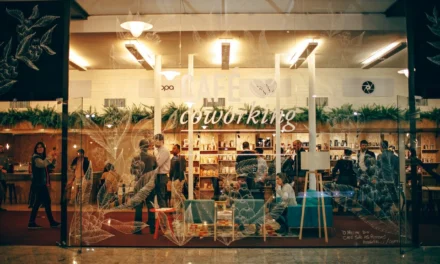The 2025 real estate agent is located at the crossroads of two worlds: that of human relationships, still as essential, and that of technologies, which has become essential. The profession, transformed resolutely, faces new challenges by kissing new opportunities. But what does the daily life of a modern real estate agent imply specifically?
Among emerging trends, digital tools and customer expectations, we immerse in this reality of perpetual evolution.
A day scored by technology
The adoption of digital tools has fundamentally changed the way in which real estate agents work. Virtual visits have become a standard. According to a recent statista study, almost 75 % of potential buyers are now making a virtual visit before moving physically. This offers customers an immersive experience, while allowing agents to save a precious time by prequalifying perspectives.
A typical real estate agent often begins with a review of digital tools at your disposal: contact management platforms (CRM), real estate marketing applications and 3D simulation software. These technologies allow you to customize the interactions, anticipate customer needs and offer appropriate solutions. AI also plays a central rolefacilitating the analysis of market trends and the prediction of price fluctuations thanks to sophisticated algorithms.
Full mutation customer expectations
In 2025, customers are more informed than ever. Thanks to platforms such as Zillow, Well’ici or Selloger, they often arrive with very precise expectations: location, area, energy efficiency and even the connectivity score of the region. Respectively, The modern real estate agent is no longer content to offer goods, but must actually act as a trust advisor.
For example, a couple looking for housing in Paris could want data in neighboring schools, trips in public transport or even the carbon footprint of the building. Therefore, the agent must master this information, often accessible through real time databases and integrate it into its presentation strategy.
According to a Deloitte report, Real estate officers who use data display tools, such as interactive cards and prognosis graphics, increase their conversion rate by 30 %. This shows how crucial is the adoption of technologies to remain competitive in this sector.
Emerging trends of the profession
Digitization does not stop at the tools. It also influences broader trends in the profession. Among the most striking in 2025:
- Sustainability in the heart of discussions : Customers are increasingly sensitive to environmental criteria. Ecological certifications, such as the BBC label (low consumption building) or HQE (high environmental quality) have become a determining sales argument.
- The emergence of remote work and hybrid spaces : With the evolution of work methods, many buyers look for products that offer spaces adapted to work at home. Respectively, Agents must highlight offices or modular parts.
- Blockchain transactions : Although it is still in the adoption phase, the block chain gradually stands out as a tool to ensure real estate transactions. This allows total transparency and reduces the risk of fraud.
- Research hyperlocation : With increasingly precise algorithms, customers can now go to the products to a street nearby. This forces agents to become real local experts, knowing every detail in their sector.
A human relationship always central
Despite technological advances, the heart of the profession remains human. Buying or selling real estate is a great decision with emotional and financial consequences. Therefore, customers are looking for professionals capable of listening, empathy and advice.
Agents thus dedicate a large part of their time to cultivate personal relationships. A study conducted by the National Association of Real Estate Agents shows that 78 % of customers who have had a good experience with their agent recommend it to those around them. Consequently, mouth to mouth and recommendations remain pillars of success in this profession.

The challenges to face
As the profession evolves, it must assume unique challenges. Among them:
- Information overload : Customers, often saturated with online data, expect agents that help them classify and make informed decisions.
- Increased competition : The appearance of automated platforms and AI capable of proposing goods without human intervention raises a long -term threat. Therefore, agents must constantly demonstrate their added value.
- Regulation of new technologies : The use of certain tools, such as Blockchain or drones to capture images, remains unclear from a legal point of view, which forces agents to remain attentive.
The promising future of the sector
Despite these challenges, the profession of the real estate agent retains a strong attraction. According to the study of “future real estate”, the sector should grow from 6 % per year until 2030, brought by a sustained demand in housing and professional spaces. Agents who manage to combine human experience and technological domain will have a clear advantage.
In conclusion, the life of a real estate agent in 2025 is stimulating and demanding. Digital tools revolutionize the profession, but do not replace the importance of human contact. In a market where expectations evolve rapidly, only an adapted and balanced approach will allow professionals to prosper. Therefore, the future of real estate belongs to those who can combine innovation and relational with Brio.





